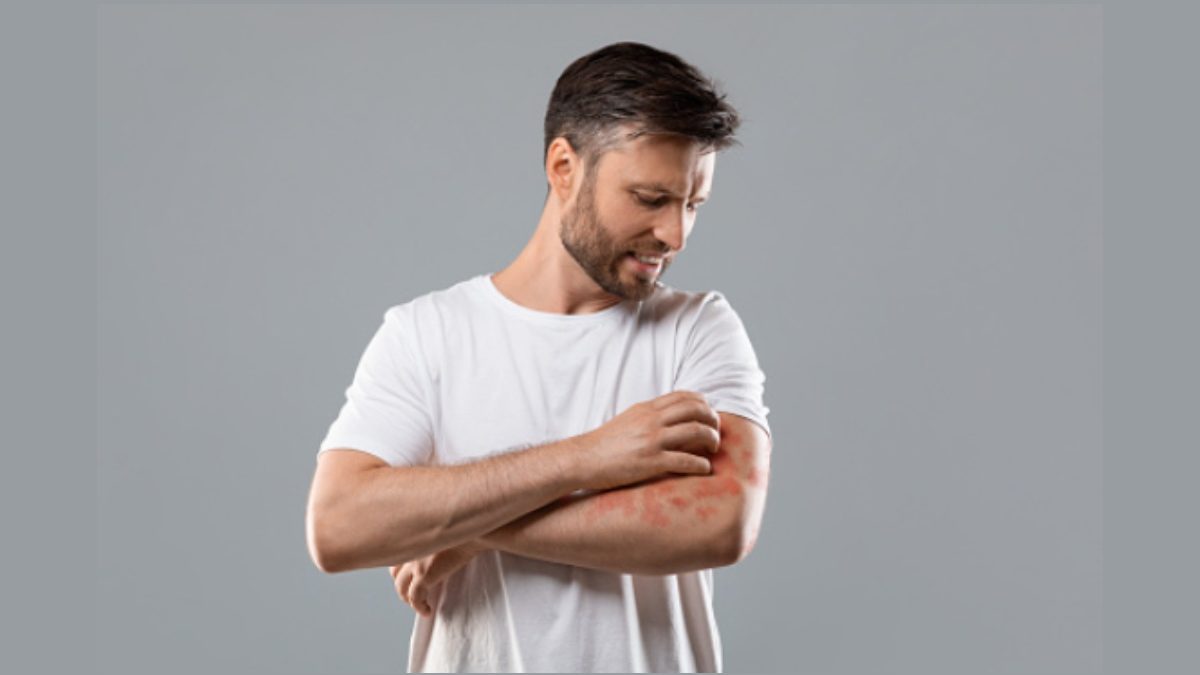Key Signs of Eczema to Look Out for and Ways to Treat the Condition – As we say goodbye to the warmer months of the year and head towards winter, many people who suffer from eczema each year (many of whom find it flares up in winter) will sigh. Lots of people around the country are unaware of the specific type of dermal issue they have and think that ignoring it will make it go away. However, this certainly isn’t the case. It’s vital to understand eczema and how it works and to know some of the best ways to treat the skin problem if it’s something you’re sick of.
Table of Contents
Understanding Eczema and How it Works
Firstly, you need to know what eczema is. This term describes a group of conditions that leads to inflamed, itchy, or rash-like skin. The problem can occur in numerous body parts but is particularly common on the hands, arms, head, neck, knees, ankles, feet, and elbows. There are also multiple types of eczema, such as the most prevalent, atopic dermatitis, and contact dermatitis, nummular eczema, seborrheic dermatitis, stasis dermatitis, and dyshidrotic eczema.
This annoying skin condition often starts when people are young, as children or teens, but many people don’t get it until they’re adults. The severity of eczema can range significantly and change throughout a person’s life. It’s also worth noting that eczema isn’t contagious, and the skin is inflamed rather than “dirty” or infected.
Signs of Eczema You Need to Know
As you might imagine, the signs and symptoms of eczema vary according to the person and the occurrence in their life. How it shows up for one sufferer can be quite different from how it looks and feels to another. You might also have one or multiple symptoms at once, or these signs may change over time. You can get different types of eczema in different parts of your body, which can all present uniquely, too.
However, in general, eczema is an itchy skin condition that indicates very inflamed skin. Many people struggle to stop scratching at the sore areas, which can make the skin bleed. If you notice the skin crusting or oozing, you may have eczema, and the same goes for areas of swelling, rough or scaly, and leather-looking skin. It may also be discolored, dry, and generally sensitive.
Common Risk Factors for and Causes of Eczema
While anyone can suffer from eczema, it seems that people who are most at risk of developing the issue are women, people who come from a family with a history of or their own history of asthma, hay fever, or dermatitis, and African Americans. As for the causes, it’s unclear, but it may be to do with environmental triggers (e.g., wool and other fabrics, harsh soaps, tobacco smoke, air pollutants, and some beauty items) and genetic factors.
Tips for Diagnosing and Treating Eczema
If you’re concerned you may have eczema, it’s wise to book an appointment with a doctor ASAP so they can assess you. They will examine the inflamed areas on your body and get some health history from you to provide a diagnosis. Some physicians also perform tests to confirm if you have eczema or not. For instance, they might order blood tests (just in case the skin issues are caused by something besides dermatitis) or ask you to get an allergy skin test done. In rare cases, a skin biopsy may be required to determine which form of dermatitis you have.
While, unfortunately, there isn’t a cure as yet for eczema, there are treatment options you can try out. For example, try to determine what leads to flare-ups so you can avoid these things, and try to get a handle on stress and anxiety, as these can inflame many people’s eczema. Also, you might like to take some over-the-counter antihistamines to make the itching more bearable or test out a quality hemp oil tincture that is known to be soothing on the skin.
Other ideas include using a humidifier to prevent your skin from drying and keeping it moisturized with suitable creams or ointments. Avoid products with lots of chemicals, dyes, perfumes, fragrances, and alcohol. Some doctors also prescribe cortisone creams, steroid products, or shots designed to help treat eczema.
The sooner you investigate what’s going on with your skin and reach out for some assistance, the sooner you can start to feel better. Test out numerous treatment options to find the solutions that help you the most.


